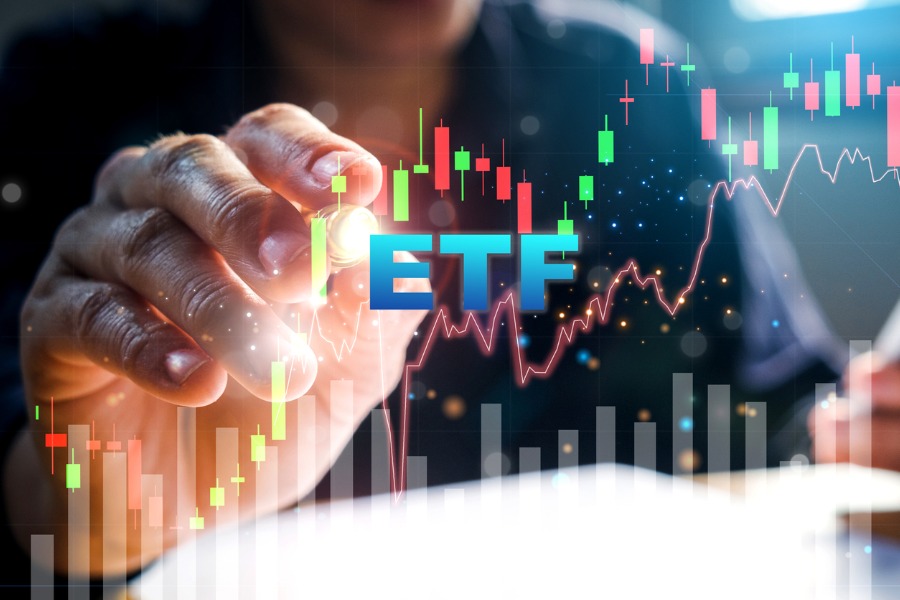

US-listed exchange-traded funds saw $105.5 billion in inflows in January, marking a 29 percent drop from the influx in December, according to a new analysis by FactSet latest analysis.
According to FactSet, total ETF assets under management stood at $10.8 trillion by month-end, with equities continuing to attract the majority of new investments.
FactSet reported that equity ETFs led with over $62 billion in inflows. Meanwhile, fixed-income funds saw a sharp increase, more than doubling their December intake with $38 billion in net new assets.
"Amid talks and plans for tariffs under the Trump administration, investors showed little interest in commodity funds, draining $809 million in December," the note read in part.
The decline in commodity ETFs came as President Trump lobbed a series of tariff threats against a raft of countries including Canada, Mexico, Colombia, and China. While he has yet to officially act on those pronouncements, investors are still weighing the risk such policies could pose to global supply chains and commodity prices.
Sector flows reflected shifting market sentiment, FactSet said, with financials and real estate receiving significant inflows while energy and basic materials experienced redemptions.
The month also saw the introduction of 74 new ETFs, down from 100 in December but above the 63 launches recorded in January 2024. Notably, active ETFs accounted for 64 of the new offerings, reinforcing a trend toward actively managed ETFs that's continued over the past year. Among asset classes, equity ETFs dominated with 55 new funds, while 15 fixed-income ETFs debuted.
ETF strategies designed to enhance income, such as covered call funds, remained popular at the start of 2025. Meanwhile, investors showed little interest in commodity ETFs, which saw $809 million in outflows amid discussions about potential tariffs under a Trump administration.
FactSet's analysis also touched on environmental, social, and governance funds, which have continued to face challenge over the recent few years. While ESG ETF flows rebounded in late 2024, they have yet to return to their 2021 levels.
“We have seen just over a dozen ETFs drop ESG from their name and, in some cases, even delist,” FactSet said.. “Perhaps it’s the novelty wearing off after the initial excitement or the level of controversies that have discouraged investors.”
Pushback against ESG has accelerated over the past several months following the November presidential election, with anti-ESG pressure being exerted against large asset managers, Wall Street banks, and other major corporate entities. But despite the near-term headwinds, FactSet's analysis suggested that the case for responsible investing is still very much alive.
"Responsible investing may evolve to meet the new demands of certain kinds of investors, and issuers may take steps to address their concerns," it said. "Perhaps investors seeking sustainable investments may go to specific funds with more targeted approaches aligned with their values, such as thematic funds."

It's a showdown for the ages as wealth managers assess its impact on client portfolios.

CEO Ritik Malhotra is leveraging Savvy Wealth's Fidelity partnership in offers to Commonwealth advisors, alongside “Acquisition Relief Boxes” filled with cookies, brownies, and aspirin.

Fraud losses among Americans 60 and older surged 43 percent in 2024, led by investment schemes involving crypto and social manipulation.

The alternatives giant's new unit, led by a 17-year veteran, will tap into four areas worth an estimated $60 trillion.

"It's like a soap opera," says one senior industry executive.
RIAs face rising regulatory pressure in 2025. Forward-looking firms are responding with embedded technology, not more paperwork.
As inheritances are set to reshape client portfolios and next-gen heirs demand digital-first experiences, firms are retooling their wealth tech stacks and succession models in real time.
